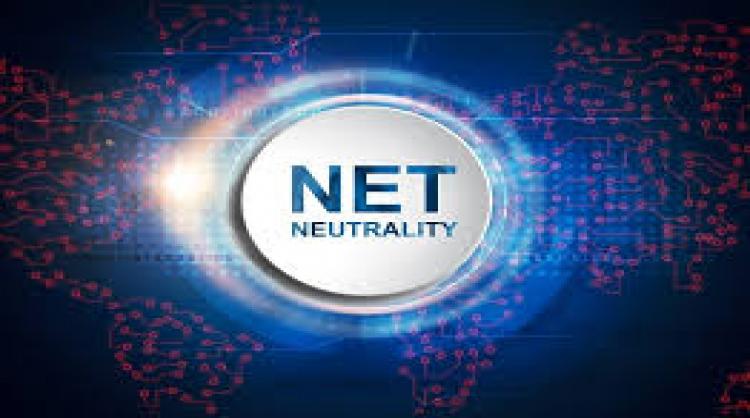Ninth Circuit Upholds California Net Neutrality Law
February 4, 2022 | by Andrew Regitsky

In one of the least surprising decisions ever, a three-judge panel of the ultra-liberal Ninth Circuit Court of Appeals in San Francisco unanimously found in a January 28, 2022, opinion, that California’s Net Neutrality Law (SB-822) requiring ISPs to treat all web traffic equally was legally enacted. The decision comes 10 months after the Eastern District of California originally upheld the statute and nine months after that decision was appealed by ISP trade associations.
SB-822 is even more stringent than the federal Net Neutrality rule that was eliminated by the Trump FCC and upheld by the DC Circuit Court of Appeals. It even outlaws zero data services. SB-822 also makes it unlawful for a fixed or mobile Internet provider to engage in the following activities:
(1) Blocking lawful content, applications, services, or nonharmful devices, subject to reasonable network management.
(2) Impairing or degrading lawful Internet traffic based on Internet content, application, or service, or use of a nonharmful device, subject to reasonable network management.
(3) Requiring consideration, monetary or otherwise, from an edge provider, including, but not limited to, in exchange for any of the following:
(A) Delivering Internet traffic to, and carrying Internet traffic from, the Internet service provider’s end users.
(B) Avoiding having the edge provider’s content, application, service, or nonharmful device blocked from reaching the Internet service provider’s end users.
(C) Avoiding having the edge provider’s content, application, service, or nonharmful device impaired or degraded.
(4) Engaging in paid prioritization.
(5) Engaging in zero-rating in exchange for consideration, monetary or otherwise, from a third party.
(6) Zero-rating some Internet content, applications, services, or devices in a category of Internet content, applications, services, or devices, but not the entire category.
(7) Unreasonably interfering with, or unreasonably disadvantaging, either an end user’s ability to select, access, and use broadband Internet access service or the lawful Internet content, applications, services, or devices of the end user’s choice, or an edge provider’s ability to make lawful content, applications, services, or devices available to end users. Reasonable network management shall not be a violation of this paragraph.
Unfortunately for ISPs, in its so-called “Mozilla” opinion supporting eliminating the federal Net Neutrality rule, the DC Circuit found that by reclassifying broadband Internet access service as a telecommunications service, the FCC lost the ability to preempt states that choose to enact their own net neutrality laws. That is because with only Title I authority over ISP, the courts have found that there is now a federal vacuum that states can fill. For example, in its opinion, the Ninth Circuit panel stated:
Guided by the D.C. Circuit’s decision in Mozilla, the panel held that only the invocation of federal regulatory authority can preempt state regulatory authority. The panel held that, by classifying broadband internet services as information services, the FCC no longer had the authority to regulate in the same manner that it did when these services were classified as telecommunications services. The FCC, therefore, could not preempt state action, like SB-822, that protects net neutrality. The panel held that SB-822 did not conflict with the Communications Act itself, which only limits the FCC’s regulatory authority. The panel held that the service providers’ field preemption argument was foreclosed by case law and various provisions of the Communications Act. (United States Court of Appeals for the Ninth Circuit, Opinion No. 21-15430, released January 28, 2022, at p. 3).
FCC Chairwoman Jessica Rosenworcel cheered the California decision, and clearly awaits a fifth commissioner to be confirmed to the agency to reinstate a federal net neutrality rule. She may have to wait for a while, since the Senate Commerce Committee vote on Gigi Sohn was postponed this week because of the stroke suffered by New Mexico Democrat Ben Ray Lujan. Without Senator Lujan’s vote, Sohn would never get the Committee’s approval. Even when he returns, her approval continues to be in doubt in the Senate.
In response to the Ninth Circuit opinion, ISPs issued a joint statement condemning the decision because it could potentially allow 50 states to issue 50 different net neutrality laws, resulting in customer confusion and increased broadband prices. They said they would review their next steps while continuing to lament the failure to Congress to settle the issue of broadband regulation once and for all.
ISPs have only one path left – the United States Supreme Court - where the conservative majority would presumably be more sympathetic to their case. However, they will have to determine whether it is better to wait until a new federal Net Neutrality law is enacted and appeal that or appeal the California decision now.
The truth is ISPs are in a box. If they appeal the California decision, they may lose while winning if the High Court finds the California law illegal and paves the legal way for a strong new federal Net Neutrality rule once a new FCC commissioner is eventually confirmed.

